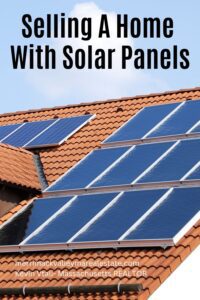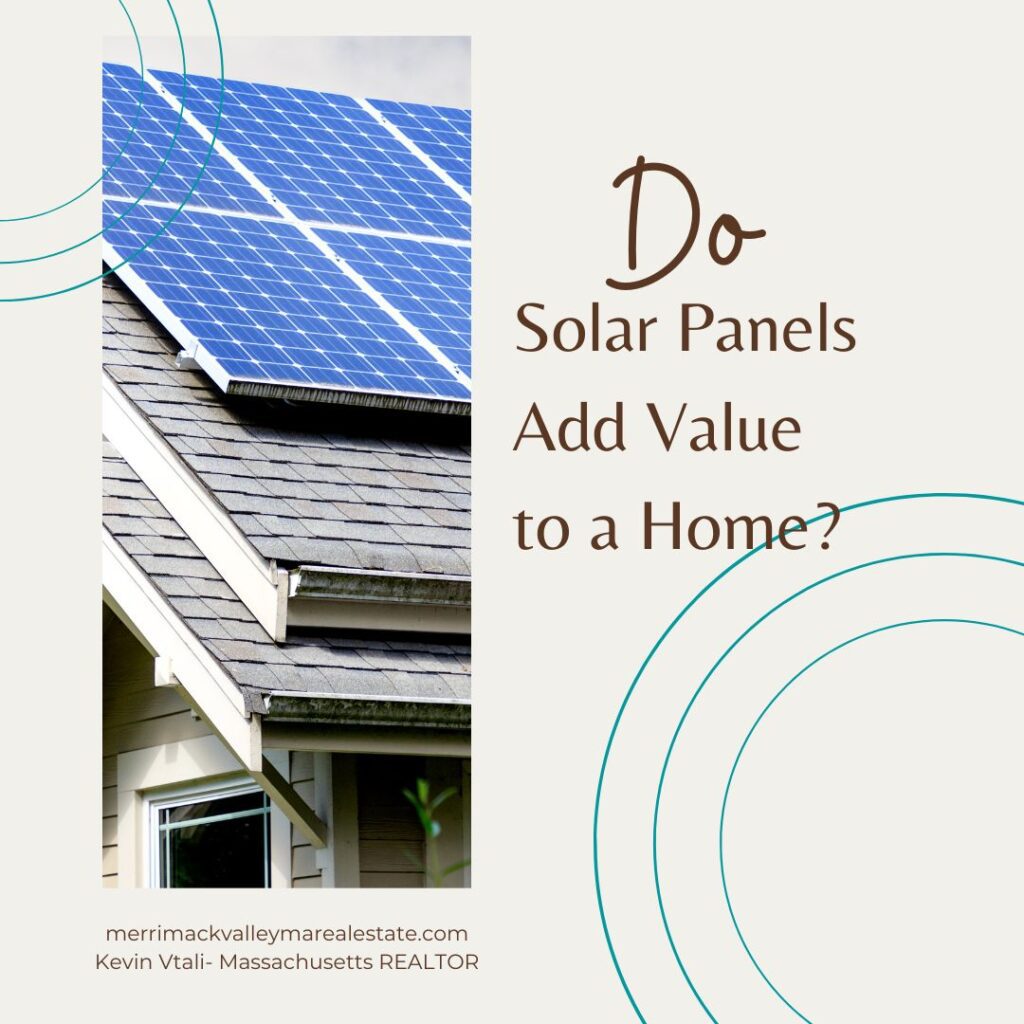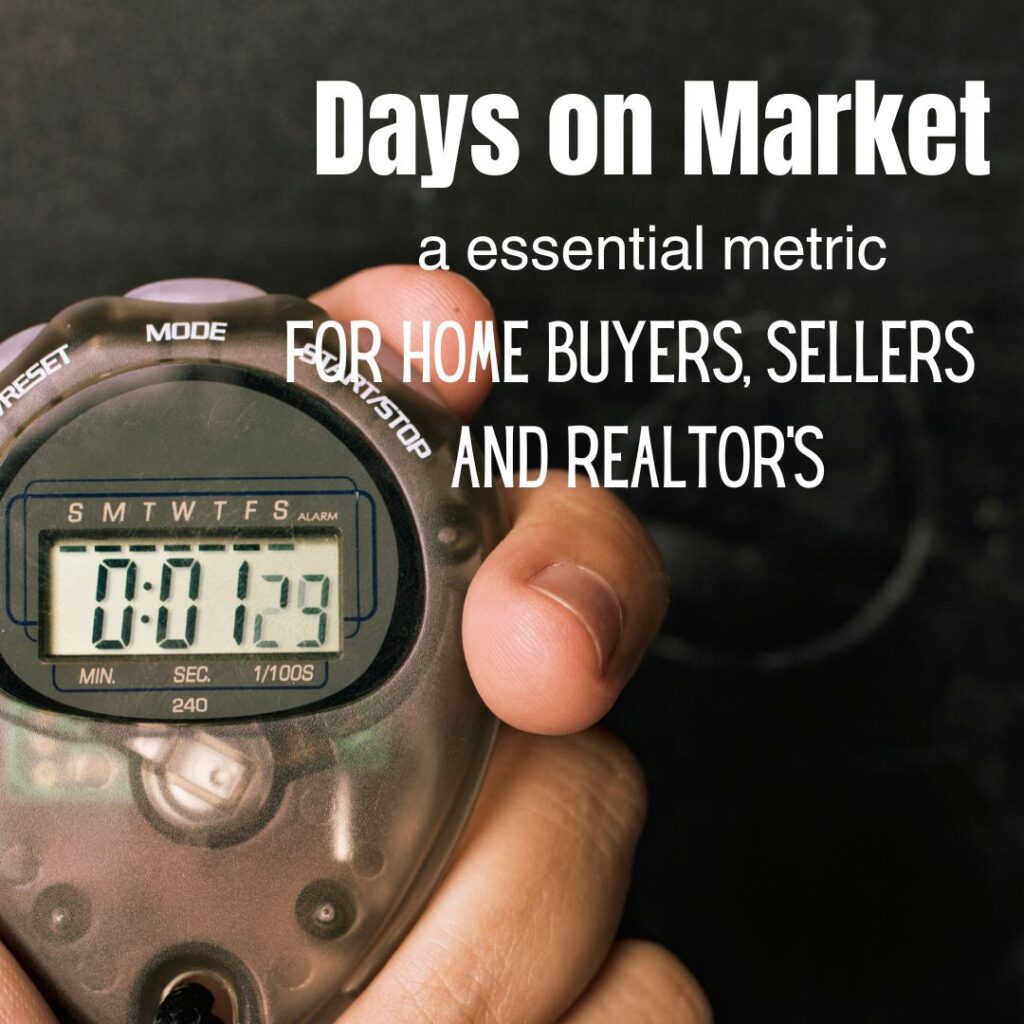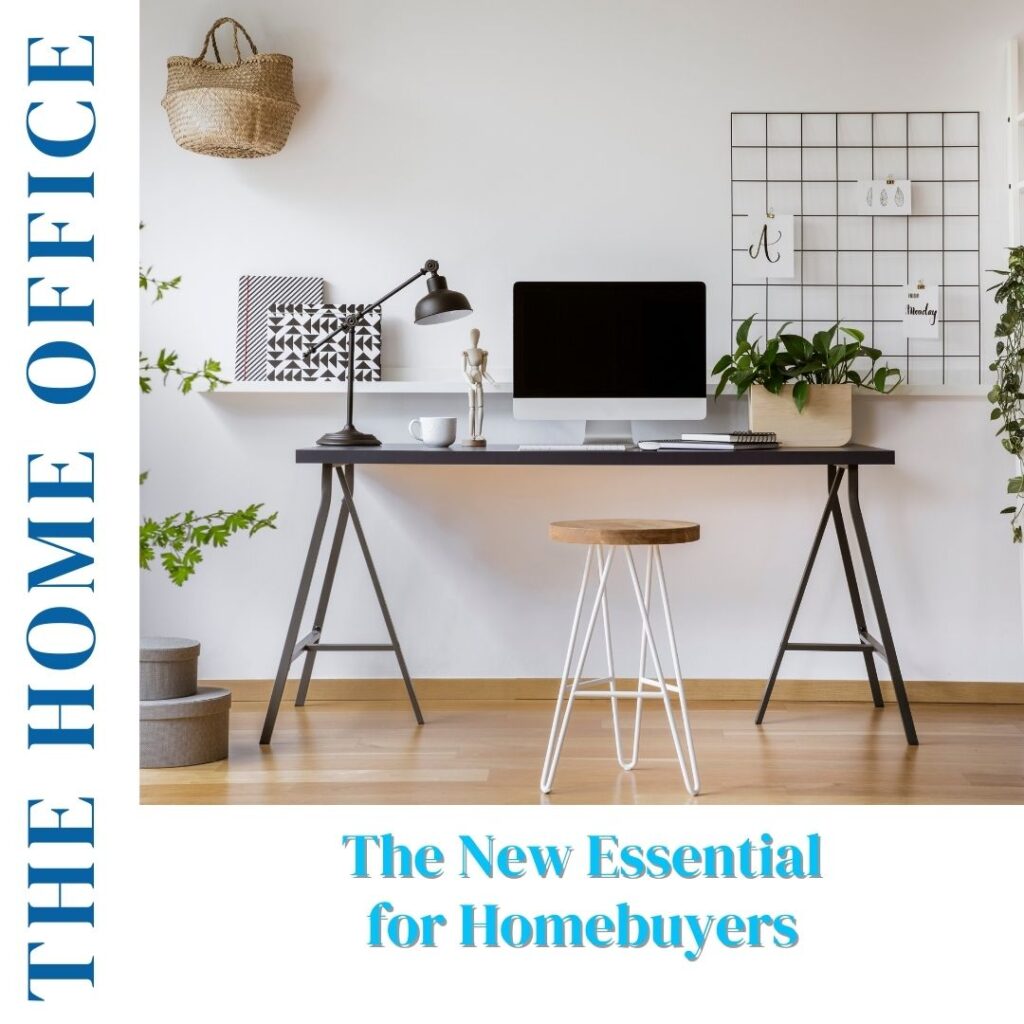

But the underlying fact is a solar installation may or may not be an improvement that adds value. And, now you are wondering how selling your home with solar panels is going to work.
If you are currently a homeowner that is contemplating the installation of solar panels, take a step back and think about it.
The first question is do you think you will be selling your home in the next 5-7 years, you may want to rethink the solar panel idea. If this is a long-term or forever house then installing solar panels may not be a bad idea for the savings you may gain in your electric bill.
The gains are minimal and it takes time to recoup the initial cost.
Let’s delve into selling a home with solar panels.
How Do Homeowners Pay For Solar Panels?
The added value to a home having solar panels on your roof varies depending on how you have paid for your solar panels. It all boils down to how the bank’s appraiser is going to view the installation.
When selling a home with a solar sytem installation you want to show your buyers value. The first is do they increase the value of the home?
That varies depending on how you purchased/leased the system
Panels bought outright that you own may add about $10k to $15k of value. Unfortunately, systems that are leased or owned by a third party do not add value in the eyes of real estate appraisers.
The key to selling a home with solar panels is to show the buyer there is an advantage. If they are purchased outright it does add value. But if they are leased not all is lost the system does not add value to the home. Instead focus the savings the leased panels will provide.
Buying Outright
Buying your system outright will definitely give you cost saving on your electric bill. A typical installation runs $20,000 to $30,000. Owning your own panels outright is viewed as real property by Fannie Mae and Freddie Mac.
As real property, they do add value to your home. Unfortunately, it will not be anywhere near what you paid for them.
Again if you are going to own a home for the long haul it definitely can be a cost saver over 10-20 years. The problem lies if you make the investment and try to sell your home in the next few years, there is a strong possibility you may lose money on the installation.
Get A Loan
Installing your own solar panels that you own outright but finance through a home equity line of credit, refinance, credit card, or loan from the manufacturer is another route. The banks will still look at this as real property and will add value to your home.
The downside is when you go to sell your home with solar panels installed, you will have to pay off the balance of the solar panels, depending on how you financed them. Even if you don’t, why would you want to keep paying for something you no longer own or get the benefit of using?
Just like buying your system outright, consider how long it will take you to see the benefit of purchasing solar panels for your house and the break-even point to realize a return on your system.
For example, if you average 360 a month for electricity and you can save 70% that equals $252 dollars a month in savings. If your system cost $25,000, it will take you 100 months (or 8.26 years) to break even and see a financial benefit.
Leased Panels
Leased panels, owned by a third party will not be viewed as real property by appraisers and banks. For this reason, they will not add value to your home.
One downside when you go to sell your home with solar panels is your buyers need to qualify to take over the lease payment on the system. Or you need to buy out the lease completely.
The other issue is at the end of the lease, you still don’t own the panels and the decision is to renew the lease (usually on a shorter term) or have the solar company remove the panels.
Power Purchase Agreement or PPA
It is a slightly different twist on leased panels. Basically, you agree to purchase power from the Solar Company at a reduced rate. In exchange, you give the company the right to install panels on your roof.
You never own the panels so you are not adding value to your home. And when you go to sell with the installation there needs to be a transition of the panels to the new owner.
What Is a UCC Lien For Solar Panels
With a leased solar panel system or PPA comes a lien on your property.
A UCC-1 filing by a solar lender or bank is a recorded document showing that they have the legal right to repossess all of your solar equipment should you fail to keep up with your payments on your lease of solar system.
What Concerns Do Homebuyers Have When A House Is Sold With Solar Panels?
- Here is an article from the LA Times about solar panels complicating home sales.
- Why leased solar panels may not be an asset when a house is up for sale– Washington Post
- Rooftop Solar Panels Scaring Buyers When It Is Time To Sell- Bloomberg
Regardless of how the panels are paid for buyers will have concerns. Selling your home with solar panels requires you to alleviate those concerns and show the panels are a benefit to your buyers and not a hindrance.
Home buyers are filled with some skepticism about solar panels. Don’t assume just because you like the idea of solar panels all home buyers will. In fact, having a system installed will add a whole other set of issues that could scare away some buyers. Some of the buyer’s concerns are as follows.
- Do they actually save them money on their electric bill?
- What kind of maintenance is involved in having solar panels?
- What happens if their roof needs to be replaced?
- What happens if I resell my home?
- They are just ugly. Let’s face it if they are prominently displayed on the front side of the home they detract from your home’s curb appeal.
- Does the homebuyer need to become a party to a contract to purchase a home with solar panels?


Selling A House With Solar Panels
So you didn’t resist the temptation of installing solar panels on your home but now you need to sell.
The good news is people do buy homes that have solar panels installed. As a home seller do your job by making it easy for homebuyers to make a decision.
Owned Panels
Have all sales brochures, receipts, warranties, contracts, etc… available for your home buyers. Include:
- The yearly cost of maintenance.
- Several years of electric bills since installing the panels and before installing the panels. Show there is a financial benefit to buying a home with solar panels.
You want to show potential buyers the panels are maintenance-free and can save them money in their utility costs.
Leased Panels
There are a million companies out there offering leased solar panels and the temptation of saving on your electric bill can be a big one. The contracts that I have seen so far are leases for 20 years.
The savings on electricity pay the lease and supposedly then some. For most of the listings I have been involved with, the solar panels have saved the homeowner between $200 to $500 a year. The savings is after paying the lease payment of $35-75 a month.
Please bear in mind this is in New England, things may be different parts of the country. In New England, only 5 or 6 months out of the year supplies surplus energy generated from solar panels.
In winter months the savings do not cover the lease payments. To some home buyers, the fear of the unknown is greater than their desire to save $200-500 a year on electricity.
Contact your leasing company the minute you have decided to sell your home, so you can get all the necessary details on transferring the panels to the new buyer.
Leased Solar Panel Problems
This is where things start to get a little funky. You have signed a 20-year lease for the solar equipment. Most likely there is now a lien on your home from the leasing company. You have agreed that the lease must be assumed by the new owner. You are locked into those panels on your home for 20 years.
Now, the solar company has to approve the new owner. It is a credit approval and they require a minimum credit score. You have now involved a third party in the sale of your homes. So there are three potential issues:
- A minimum credit score is required for the new owner to take on the leased panels.
- The new homeowner may have the credit score but now the added lease payment does not allow them to qualify for the mortgage if they are running tight on qualifying ratios.
- You are having trouble finding a buyer that whats to assume the solar panels.
That leaves you with two options:
- Prepay the lease for the remaining balance which could be upwards of $5,000 to10,000 or more and all the other lease terms remain in effect for the buyer if they choose so. Obviously the farther you are into the lease the lower the prepayment will be.
- Buyout the panels for $20,000+ and pay the leasing company to remove the panels or try to figure out how to use and maintain the panels once they are owned outright
So far with lots of buyer skepticism and hesitation, we have been able to sell the homes with solar panels, with relatively little impact on the sale of the home. If you are selling a home with leased solar panels make sure you disclose up front that the buyer is to assume the lease payment.
Turn Solar Panels Into A Positive
Show them that the maintenance and upkeep is taken care of by the leasing company. Be prepared with detailed bills and savings so you can show the new owner that the solar panel lease is beneficial financially.
Also, have the lease agreement readily available for the potential buyers to review. Do not wait for buyers to ask. Have the information ready the day you list the home. The unknown is what scares buyers away. Provide as much information as you can.
Worst-case scenario have a contingency plan in place if a buyer is not willing or can’t assume the lease.
Home Buyers and Homes With Solar Panels
If you are a home buyer make sure you fully understand the impact of either owning or leasing a system. You do not want to get into a situation that is not beneficial to you.
Make sure you review any lease agreement you are signing. Review several years of electrical bills to see if there is a financial benefit. The biggest complaint is the lack of savings after the installation.
Solar as an energy source in the mainstream is still relatively young. As time passes and technology improves, solar panels/ electricity will probably become more of the norm.
Until solar installations are more mainstream, buyers will be skeptical about them. If you decide to explore the savings solar panels can offer, make sure you have a long-term plan. Make sure you are not being short-sighted about saving money now but having to give up big later if, for some reason, you have to sell your house.
Summary of Selling A Home With Solar Panels
As a home seller trying to sell a home with solar panels, only assume some buyers will embrace the panels on your roof.
The best way to sell a home with a solar system is to provide your buyers with solid information. By doing so, they can make an easy, informed decision that solar panels are a plus for them. Get the information before you list your home so buyers have the information they need.
Don’t buyers with unknowns about buying a house with solar panels.
Other Real Estate Resources:
- Did you know open houses may not be all that you think they are? Luke Skar discusses the dangers of an open house and why having open houses week after week is not necessary.
- Is paying of your mortgage a good idea? Bill Gassett discusses the pros and cons of paying off your mortgage early. Paying off your mortgage early can save you 10s of thousands of dollars in interest. But you do not want to do it at the expense of your finances.
- Doing an FHA-streamlined refinance can be an attractive option for those with an FHA Mortgage. But, as Eric Jeannette points out there are seasoning requirements to be eligible for an FHA streamlined refinance.
_____________________________________________________
This article, Selling Your Home with Solar Panels, was provided by Massachusetts REALTOR, Kevin Vitali. Thinking of selling or buying a home? Call me today at 978-360-0422.




